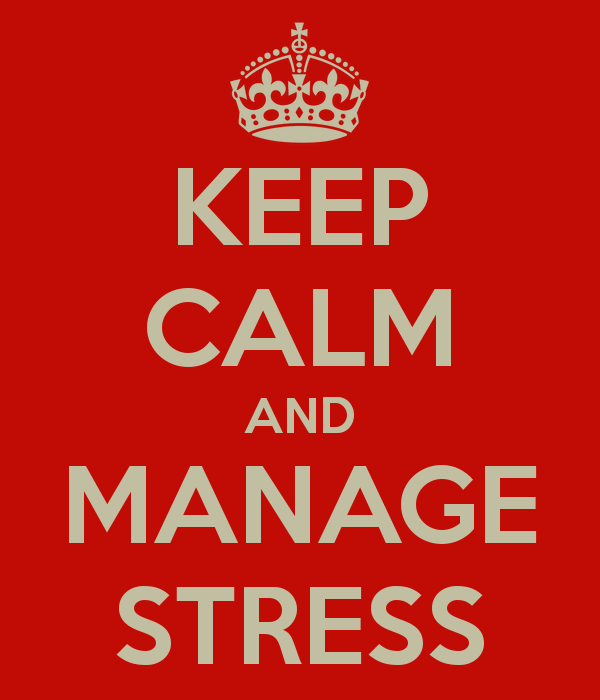Top 5: Tips for Stress Management
November 1, 2016
As any student knows, there is nothing worse than the sinking feeling of being overwhelmed. When your to-do list feels miles long, it can be easy to panic or just paralyze and do nothing. The cycle of “I-should-probably-be-doing-something-right-now” is sometimes inescapable, but there are small lifestyle changes that make a world of difference in clearing up the fog of what needs to be done. Every single person can benefit from stress management.
The following methods are tried and true from yours truly, a student just like you, and can really help to manage stress.

1. Have a planner!
The single thing I recommend first and foremost to any high school student is a planner. There is a plethora of options, from small to big, with folders, calendars, contact lists galore. It is the number one key to staying organized, which is the biggest way you can compress a mountain-load of work into what needs to be done everyday. Use your planner for everything, even outside of school.
Do not forget to write down when assignments are due a day or two ahead, so that there is ample time to prepare. In doing so, you are never left with last-minute panic. It also makes it incredibly clear to see which days are light and which days are heavy, so that you can plan more accordingly.
Pick one up at Barnes and Nobles or Staples, or even at our very own Pat Shack!
(Make sure you buy the “Academic Planner” types, which include the academic year from September to June, instead of a calendar year. These are organized in weeks, with plenty of space under each day to write what you need.)

2. Make a plan and commit!
Huge workloads can feel much more manageable if you have a clear plan of attack. Organize exactly what you need to do everyday in order for it to be completed in time. If you know you have an extra busy day coming up, accommodate that into your schedule. Organize your tasks based on what works best for you: in order of due dates, size, or difficulty level.
Make your plan and stick to it, no excuses. It is easy to let things pile up to last minute, but this will only make for more extreme stress and lower-quality work. Instead, do a little bit each day as soon as it is assigned, nothing more and nothing less. It won’t feel like a big deal as you’re doing it, and soon, all your pieces will add up and it’ll be done before you know it.
If you’ve done your day’s work, don’t feel guilty for not doing tomorrow’s.
If you do end up procrastinating to the last minute, which happens to the best of us, don’t beat yourself up. Sit down, get focused, stop panicking, and work. Every minute you spend stressing out and complaining is one less minute you could have spent being productive.

3. Do Future-You a Favor
A general rule of thumb is that the sooner you complete something and get it out of the way, the less last-minute stress you’ll have. However, if you’re not of those people, it’s almost impossible to start something you know isn’t due for another month. Here’s an easier rule:
If a task can be completed in less than 15 minutes, drop everything and do it right now.
It’s tempting to push off a little task for tomorrow, but all of the little things can pile up and be overwhelming. Complete the small tasks, which don’t take too much time, and you will feel more accomplished and with a lighter load. For big tasks that cannot be done so quickly, divide and conquer!

4. Non-Stressful Hobbies
To offset high demand stress, it is important to have outlets and activities where you can turn off your brain and just exist. There are a lot of different stress-relieving options, which can make you feel a lot less high-strung after they are completed.
For some, this can be coloring (check out adult-coloring apps), painting, or listening to music (Spotify has stress-relieving playlists!). Try out a bunch of them and see what works the best for you.
Remember, without an outlet, the pent-up stress has nowhere to go, and it will pop one day.

5. Accept your limits
Every student has a breaking point. The entire point of stress management is to increase your tolerance before hitting this breaking point, but sometimes, it is just inevitable. If you ever reach this place where you are far too overwhelmed and stretched too thin, put everything down and just relax.
Being mentally happy and healthy always comes first. Working when you are dying sometimes just is not worth it. You have to know when it is time to breathe. Whether this means taking the L on a big test, handing in a project a day late, or pushing your responsibilities off for another day, accept that you have reached your breaking point and know that it does not make you any less of a student. One failure is not going to ruin your entire life, even if it feels like it.
Remember, there is nothing that cannot be broken down, managed, and completed. You are fully capable and equipped with all the best ways to succeed.
You’ve got this.














































